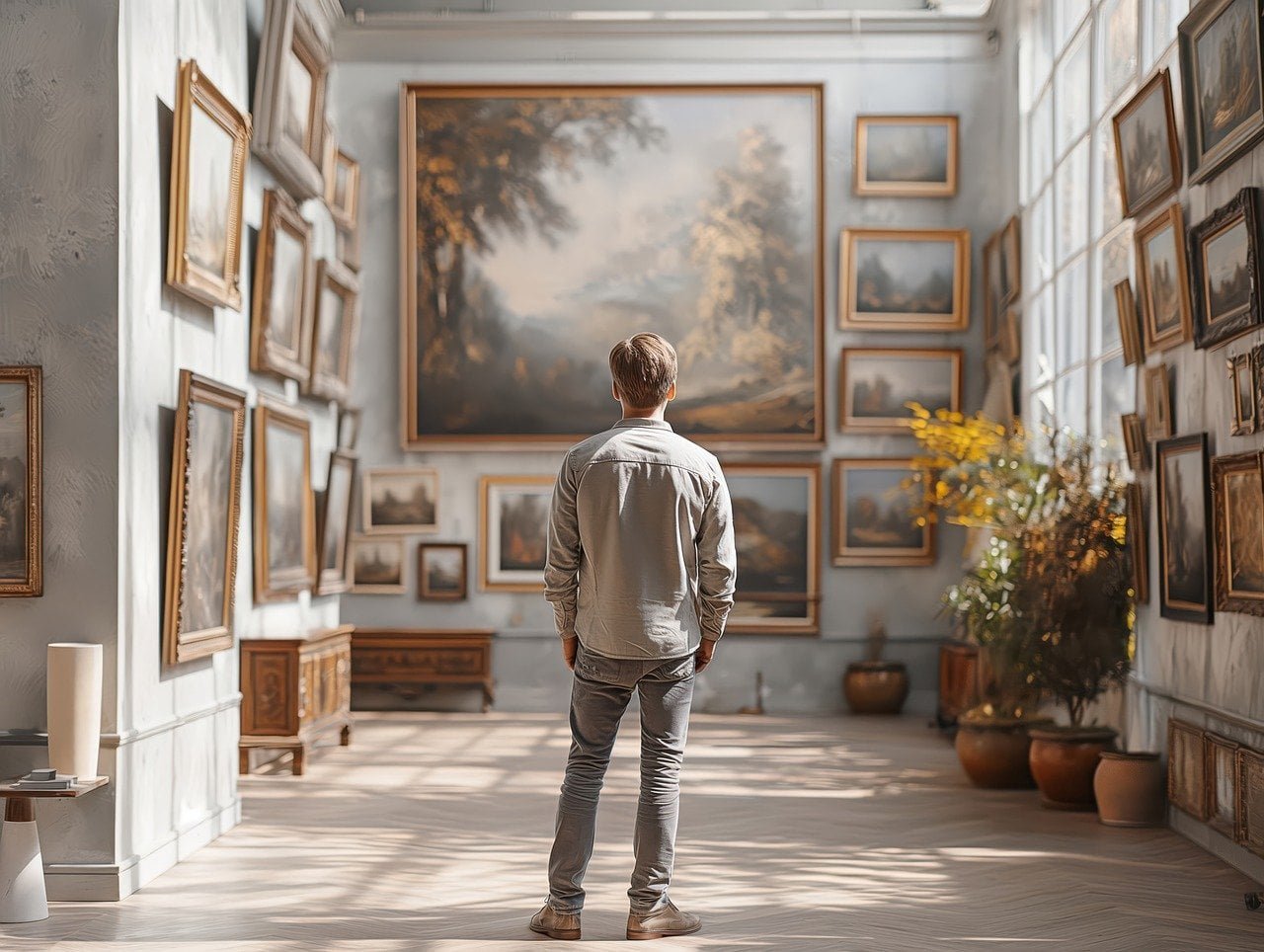Starting an art gallery within the united kingdom can be a satisfying project, allowing you to exhibit creativity whilst contributing to the colourful nearby art scene. However what does it take to launch such an organization? Do you need a license, and the way do you go about putting one up? This guide walks you via the stairs, legalities, and creative factors worried in commencing an artwork gallery.
Overview of Art Galleries
Art galleries are important to the UK’s cultural panorama, connecting artists with the public and showcasing their work. Discovered in each bustling cities and quaint towns, they decorate community identity and force financial increase through attracting travelers and supporting nearby corporations.
Greater than simply exhibition areas, galleries function cultural hubs that sell creativity and dialogue, supplying artists important publicity and sales possibilities.
If you’re thinking of opening a gallery, understanding this broader role can inspire your approach, but be sure to consider important practicalities like licensing and legal requirements.
The Licensing Question
To open an art gallery in the UK, you generally don’t need a specific license for exhibition space. However, operational activities may require additional licenses. As an example, if you plan to serve alcohol, an alcohol license is important, and ticketed activities may additionally require an activities license. It’s important to investigate these requirements early to ensure compliance. Consulting criminal specialists or local government can assist clarify your duties and ensure you operate within the prison framework.
Prison and Licensing requirements
Navigating the criminal and licensing landscape is crucial for correctly establishing your art gallery and making sure its lengthy-term viability.
Business Registration
To carry your gallery to lifestyles, begin by using registering it as a business. pick out a shape—sole dealer, partnership, or constrained organisation—each with special legal and financial implications. expert recommendation allow you to pick out the great choice in your goals. check in with HM revenue & Customs (HMRC) for tax compliance and legitimacy. take into account applying for logos to defend your gallery’s name and emblem, which is critical for status out in a aggressive marketplace.
Local Council Permits and Health & Safety
Before opening, address local council permits and health and safety regulations. You may need planning permission or change-of-use consent if your premises wasn’t previously a gallery. Conduct risk assessments to ensure fire safety, adequate emergency exits, and accessibility for all visitors. Check local council policies to streamline the process and engage early with authorities to preempt issues.
Public legal responsibility coverage and occasion Licensing
Public liability coverage is vital for gallery proprietors, defensive in opposition to injury or damage claims. It demonstrates professionalism and guarantees protection for artists and patrons. If hosting events, selling refreshments, or serving alcohol, you’ll need additional licenses, such as an alcohol license for openings. Securing necessary licenses keeps you compliant, allowing you to focus on creating a remarkable gallery experience.
Understanding the UK Art Market

Understanding the dynamics of the UK art market is crucial for successfully navigating your gallery’s journey and optimising its potential for growth and engagement.
Market Research
Knowledge the United Kingdom art market is essential in your gallery’s achievement. Conduct thorough marketplace studies to become aware of trends, competitors, and goal audiences, shaping your business method efficaciously. Interact with neighborhood artists and artwork fanatics, attend fairs and exhibitions to gather insights, and network within the industry.
Expertise pricing strategies is also critical; understanding how comparable galleries rate their works will manual your sales technique and help set up your gallery’s recognition.
Curating Art
Incorporating contrast in art enhances visual appeal and encourages exploration through diverse patterns, colors, and themes. Collaboration with artists can diversify your offerings and appeal to distinctive audiences. Frequently updating exhibitions keeps your gallery sparkling and encourages repeat visits.
Setting Up Your Gallery
Establishing a successful art gallery involves careful planning in various key areas.
Design and Presentation
Creating an inviting gallery space is vital for enhancing the visitor experience.Awareness on lighting fixtures, layout, and accessibility. Use a combination of ambient and accessory lights to spotlight works of art without overshadowing them. Ensure the layout encourages a natural glide and provides clean signage and seating areas for vacationer consolation.
Advertising and promotion
A robust online presence is essential for attaining a much wider target market. Hold a consumer-pleasant website and active social media to show off offerings and interact artwork enthusiasts. Collaborate with neighborhood artists for events and exhibitions to attract new visitors.Additionally, utilise traditional marketing methods by connecting with local media and businesses to expand your reach.
Financial and Operational considerations
Know-how the economic and operational elements of running a gallery is critical for sustained fulfillment and boom.
Startup Costs and Budgeting
Starting an art gallery involves significant costs, making careful budgeting crucial. Key expenses include rent, renovations, utilities, insurance, and marketing. A realistic budget helps manage these costs and ensures financial viability. Look into funding sources like grants, loans, or partnerships, as many arts organisations offer support for new galleries.
Ongoing expenses need attention too. Plan for monthly operational costs such as staffing and supplies, and conduct regular financial reviews to stay on track.
Revenue Streams and Management
Sustaining your gallery requires diverse revenue streams past art income, inclusive of workshops, memberships, and products. Providing art training or website hosting activities can entice new audiences.
Correctly control prices by using monitoring sales and inventory. Often reviewing financial statements affords insights into performance and areas for improvement. Building relationships with creditors and patrons can encourage repeat enterprise, so have interaction them through newsletters or one-of-a-kind previews.
Conclusion
Commencing an art gallery in the united kingdom is an interesting and profitable challenge. From expertise legal necessities to curating fascinating exhibitions, every step offers opportunities for gaining knowledge of and increase. By means of cautiously making plans and integrating each prison and creative elements, you may set up a a success gallery that contributes to the thriving artwork scene.
Don’t forget, the art global is dynamic, so live informed and adaptable. Are seeking for ongoing training and networking opportunities to refine your method and amplify your reach. With determination and ardour, your gallery can turn out to be a cherished cultural hub that evokes and connects humans thru the electricity of artwork.




